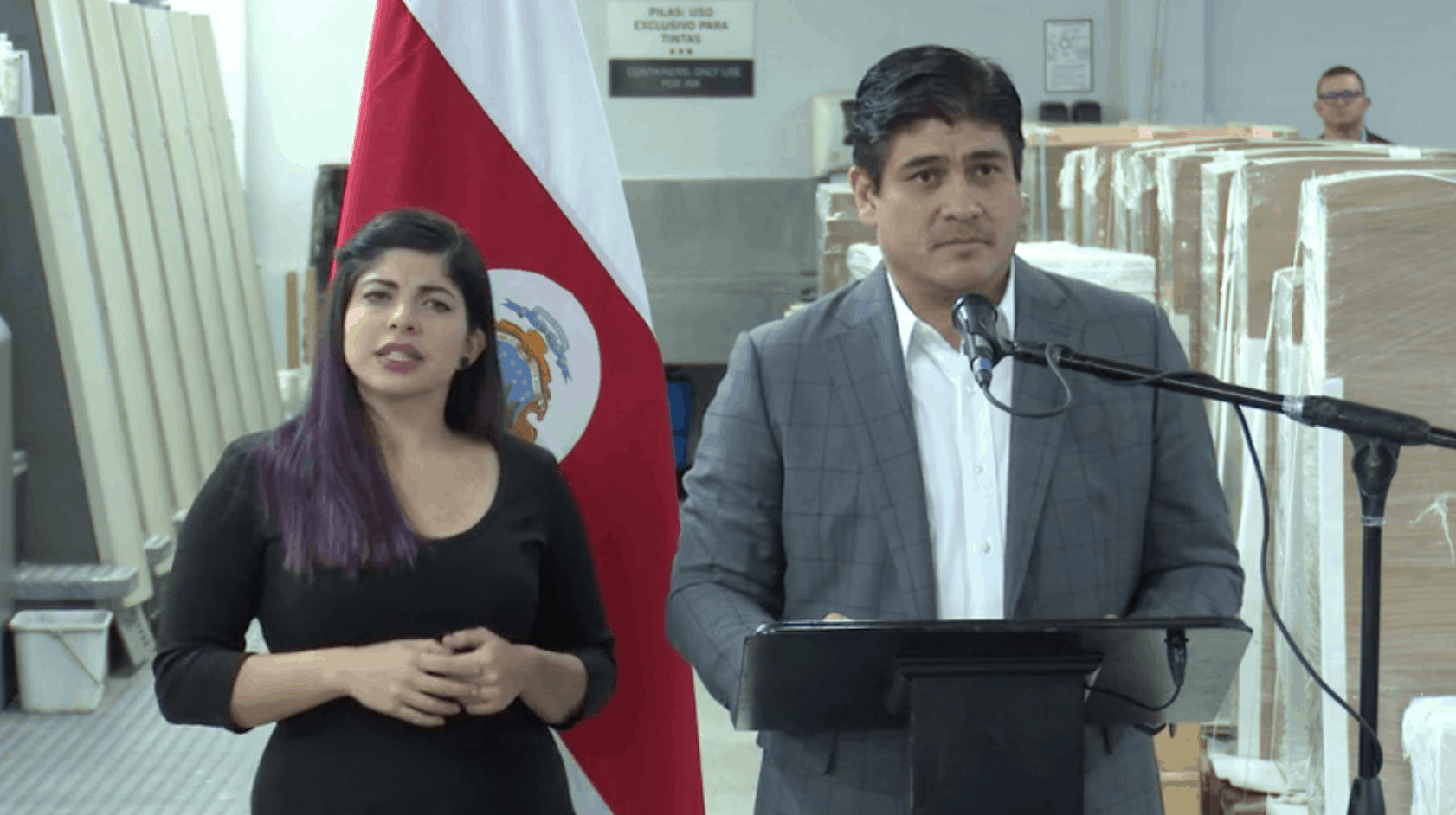Costa Rican President Carlos Alvarado signed into law on Thursday the Ley de Educación y Formación Dual (Law of Education and Dual Training), which will allow students to participate in vocational training in addition to their classroom studies.
President Alvarado and supporters of the law say it will help Costa Rican students prepare for the modern job market, while some students have protested the program, arguing it will treat them like a “cheap workforce.”
“Opportunities for all people will help this country improve,” President Alvarado said at a press conference after signing the law. “Thanks to what has happened here [students] will be able to gain experience, and even receive a recommendation.”
Students over the age of 15 at Costa Rican colleges and universities will be eligible to participate in the dual-education program.
“That is important, because one of the biggest bottlenecks our youth have to access work is their lack of experience,” Alvarado said. “Unemployment in our young adults exceeds 20%, and the main bottleneck is experience.”
President Alvarado said the law will facilitate students’ path into the job market and benefit Costa Rican companies by developing a highly skilled workforce.
“That is the only way Costa Rica will remain competitive in this world — with quality, and with its people,” he said.
In a statement, the Chamber of Industries of Costa Rica (CICR) said it supports the new legislation.
“The signing of the dual education project pays off a debt that the country had with our youth, with employment, with workers in general and with companies,” the CICR statement reads. “The legal framework that is signed today will positively impact the industry, current students and workers who require learning new skills and abilities in a practical and agile way and thus increase their chances of entering a changing labor market.”






